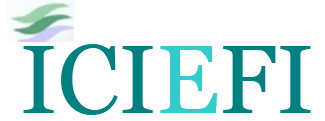BUILDING THE INDEX OF RESILIENCE FOR ISLAMIC BANKING IN INDONESIA: A PRELIMINARY RESEARCH
Abstract
The 2007-2008 global financial crises had brought severe financial instability in financial institutions, and since then it became more complex and irreparable. Therefore, it has become inevitable to examine various tools that can monitor resilience of these financial institutions, especially the banking system that plays significant role in economic development of a country. Although Islamic banking operates in the same financial environment, its distinguishing features and fundamental differences demand different treatment in building resilience. The scope of existing literature of banking surveillance tools is either to some extent, mostly limited to banking sector in general, or it is dominated by partial developments. Hence, there is a significant gap that lies in the literature to address the specificity of Islamic and conventional banking surveillance tools analysis to build resilience that can contribute to reduce the span of financial instability in a country. This study seeks to explore to fill in this gap in Indonesian jurisdiction. The study finds that optimum resilience level of Shari`ah banking in Indonesia exists in specific range as a result of the contribution that is made by each and every indicator. The study also attempts to find a way to trace some indicators that could effectively contribute to prevent the instability of Shari`ah compliant banking system in Indonesia.
Keywords
Full Text:
Full Paper_FannyReferences
Abubakar A., et al., 2015 “Kerangka dan Analisis Indikator Ketidakseimbangan Keuangan dalam Nasional and Regional Balance Sheet (Version 1), Bank Indonesia
Abubakar A., Rieska I. A., Rini Oktaviani, 2016, “Pemilihan Early Warning Indicator untuk Mengidentifikasi Distress Sektor Korporasi: Upaya Penguatan Crisis Prevention, Bank Indonesia
Alawode, A. A., 2008, "What is Financial Stability", Financial Stability Paper Series Central Bank of Bahrain, March, pp. 16.
Antonio, M. S., 2001, Bank Syariah: Dari Teori ke Praktik, Second edition, Gema Insani, Jakarta.
Asfari, D. D., 2015, "Analisis Financial Stress Indicator Sebagai Alat Ukur Stabilitas Sektor Keuangan Indonesia", Bina Ekonomi, Vol. 19, pp. 18-21.
Ascaria, et al. 2016, "Conseptual Proposal for Future Macroprudential Framework Under a Dual Financial System in Indonesia", Springer International Publishing, Switzerland.
Bank Indonesia, 2016, "Mitigasi Risiko Sistemik untuk Menjaga Stabilitas Sistem Keuangan dan Mendorong Intermediasi di Tengah Tantangan Global dan Domestik, Kajian Stabilitas Keuangan, March.
Bailey, K., 1994, Methods of Social Research, Fourth edition, The Free Press, New York.
BIS, 2009, "Strengthening the Resilience of the Banking Sector", Consultative Document BCBS, December.
Blaikie, N., 2003, Analyzing Quantitative Data, Sage Publication, London.
Chattha, J. A., 2015, Assessing the Stability and Resilience of Islamic Banks through Stress Testing under a Standardized Approach of the IFSB Capital Adequacy Framework. (A. O. Hatem A. El-Karanshawy, Ed.) Bloomsburry Qatar Foundation Journal,Vol. 5, pp. 4-5.
EY, 2016, World Islamic Banking Competitiveness Report 2016.
Farahani, Guzardi et al, 2012, Analysis of Islamic Bank’s Financing and Economic Growth : Case Study Iran and Indonesia, Journal of Economic Cooperation and Development, pp. 1-24.
Gunadi I., et al. 2012, "Pengembangan Bank Indonesia Indeks Stabilitas Keuangan (BISK)".
Gunadi I., Aditya A. T., Cicilia A.H., 2013, "Indeks Stabilitas Sistem Keuangan (ISSK) Pelaksanaan Surveilans Makroprudensial", Working Paper Bank Indonesia.
Harun, A. Cicilia, Sagita Rahmanira, R. Renanda Nathan, 2017, "Systemic Risk Measurement Framework", Article 1 FSR (Financial Stability Review) Bank Indonesia No. 27, September, Jakarta.
Holling C.S., "Resilience ad Stability of Ecological System". Annual Review of Ecological System, Vol. 4, pp. 1-23.
http://www.oecd.org
IFSB, 2015, Islamic Financial Service Industry Stability Report, Kuala Lumpur.
IFSB, 2015, Islamic Financial Service Industry Stability Report, Kuala Lumpur.
Imaniyati, N. S., 2010, Aspek-Aspek Hukum BMT, First Edition, PT Citra Aditya Bakti, Bandung.
Ismal, Rifky, 2011, The Indonesian Islamic Banking: Theory and Practices, Gramata Publishing, Jakarta.
Karim, A. A., 2008, Islamic Banking Fiqh and Financial Analysis. Third Edition, PT RajaGrafindo Persada, Jakarta.
Martin Čihák, H. H., 2008, "Islamic Banks and Financial Stability:An Empirical Study". IMF Working Paper. January.
Mejía, Alejandro López, et al., 2014, "Regulation and Supervision of Islamic Banks", IMF Working Paper, December, pp. 5.
OECD, 2005, Handbook on Constructing Composite Indicators: Methodology and User Guide, OECD Publishing. France.
Payne, G., Judy P., 2004, Key Concepts in Social Research. Sage Publication, London.
Pimm, S., 1991, The Balance of Nature? Ecological Issues in the Concervation of Species and Communities, University of Chicago Press, Chicago and London.
Rivai Veithzal, Rifki Ismal, 2013, Islamic Risk Management for Islamic Bank, First edition, PT Gramedia Pustaka Utama. Jakarta.
Republic of Indonesia, 2008, Act of The Republic of Indonesia Number 21 of 2008 Concerning Sharia (Islamic) Banking.
The World Bank, 2009, World Development Indicator, First edition, Green Press Initiative, Washington.
Triono, D. C., 2011, Ekonomi Islam Madzhab Hamfara, Second edition, Irtikaz, Yogyakarta.
Walker, B. C., 2004, Resilience, Adaptability and Transformability in Social-Ecological System. Ecology and Society. Vol. 9. September.
Wijoyo, N. A., 2015, Referensi Risiko Sistemik Perbankan, First edition, UI-Press, Jakarta.
Yuliadi, Imamudin, 2007, Ekonomi Islam Filosofi, Teori dan Implementasi, Second Edition, LPPI UMY, Bantul-DIY
DOI: https://doi.org/10.18196/ijief.115
Refbacks
- There are currently no refbacks.
Copyright (c) 2018 IJIEF: International Journal of Islamic Economics and Finance

This work is licensed under a Creative Commons Attribution-ShareAlike 4.0 International License.
International Journal of Islamic Economics and Finance (IJIEF)
International Program for Islamic Economics and Finance
Department of Economics
Faculty of Economics and Business
Universitas Muhammadiyah Yogyakarta
Pascasarjana Building, Ground Floor
Jl. Brawijaya (Ringroad Selatan), Kasihan, Bantul
D.I. Yogyakarta 55183, INDONESIA
Official email: ijief@umy.ac.id












1.jpg)